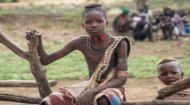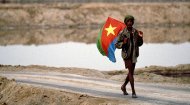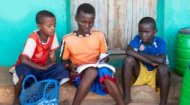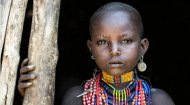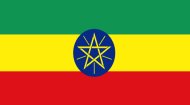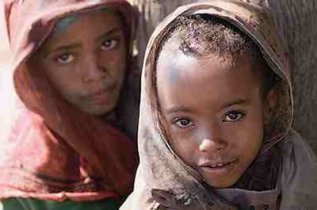|
Ethiopia Profile |
Ethiopia Profile |
Ethiopia Profile | Ethiopia Profile |
Make a virtual landing at Addis Ababa international airport at Addis Ababa the capital city of Ethiopia.
More >
Read all the latest news and current events from Ethiopia online at our Ethiopian news page. Updated daily.
More >
|
|

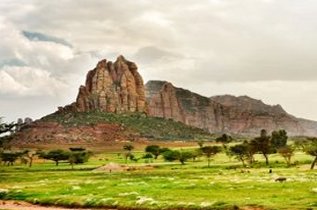 Politically, Ethiopia has been working to consolidate peace and stability following the this evastating conflict in the Tigray region, which formally ended with a peace agreement in November 2022. While this marked a significant step forward, challenges persist, including lingering tensions in other regional states like Oromia and Amhara, and efforts towards national reconciliation. Prime Minister Abiy Ahmed's government is focused on implementing the peace accord, fostering national dialogue, and preparing for future electoral processes. The Horn of Africa's geopolitical landscape, including relations with neighbouring Sudan and Egypt over the Grand Ethiopian Renaissance Dam (GERD), also remains a significant external factor influencing Ethiopia's political trajectory. Economically, Ethiopia possesses immense potential, driven by its large population, fertile land, and strategic location. The government has embarked on ambitious reform programs aimed at liberalising key sectors, privatising state-owned enterprises, and attracting foreign investment. Agriculture remains the backbone of the economy, employing a vast majority of the population, though the country is striving to diversify into manufacturing and services. However, the economy faces considerable headwinds, including high inflation, foreign currency shortages, and a substantial national debt. The recent conflicts have also had a detrimental impact, disrupting trade, displacing communities, and diverting resources from development. Despite these challenges, there's a concerted effort to reignite growth and enhance productivity across various sectors. On the social front, Ethiopia is a mosaic of over 80 ethnic groups, each with its unique language and traditions. This rich diversity is both a source of strength and, at times, a factor in internal tensions. The conflicts have unfortunately led to significant humanitarian crises, resulting in widespread displacement and a pressing need for aid, particularly in conflict-affected areas. Rebuilding social cohesion, ensuring equitable access to basic services like education and healthcare, and addressing youth unemployment are critical priorities. The vast majority of its population live in poor rural areas dependent on subsistence farming however the country remains drought prone making for widespread food insecurity. Ethiopia is in 180th place out of 193 countries and territories in 2025 when ranked in terms of life expectancy, literacy, access to knowledge and the living standards of a country. Ethiopia is reported to have the highest number of orphans in East Africa, with estimates suggesting over 4.5 million and this high number is attributed to various factors including poverty, HIV/AIDS, and ethnic conflicts. Find out more about the nation of Ethiopia in our profile pages above and get further insights watching the video (left.) |



